Your furnace heats and circulates the heated air through the home via ducts. But like many homeowners, you may fail to understand how this system works. The EPA mandate to stop freon production may cause you to wonder if your furnace uses freon. We talked to HVAC technicians, and this is what they shared.
Your furnace does not use freon to heat your home, since appliances that use freon rely on refrigerants to transfer heat. By contrast, the furnace uses electricity or burns fuel such as natural gas to heat air, which the system dispenses to keep your house warm.
Understanding how your HVAC system works will enable you to make informed choices about its maintenance. Come along as we provide insight into how your furnace works. We will also share some tips on choosing a suitable furnace for your home and how to maintain it.
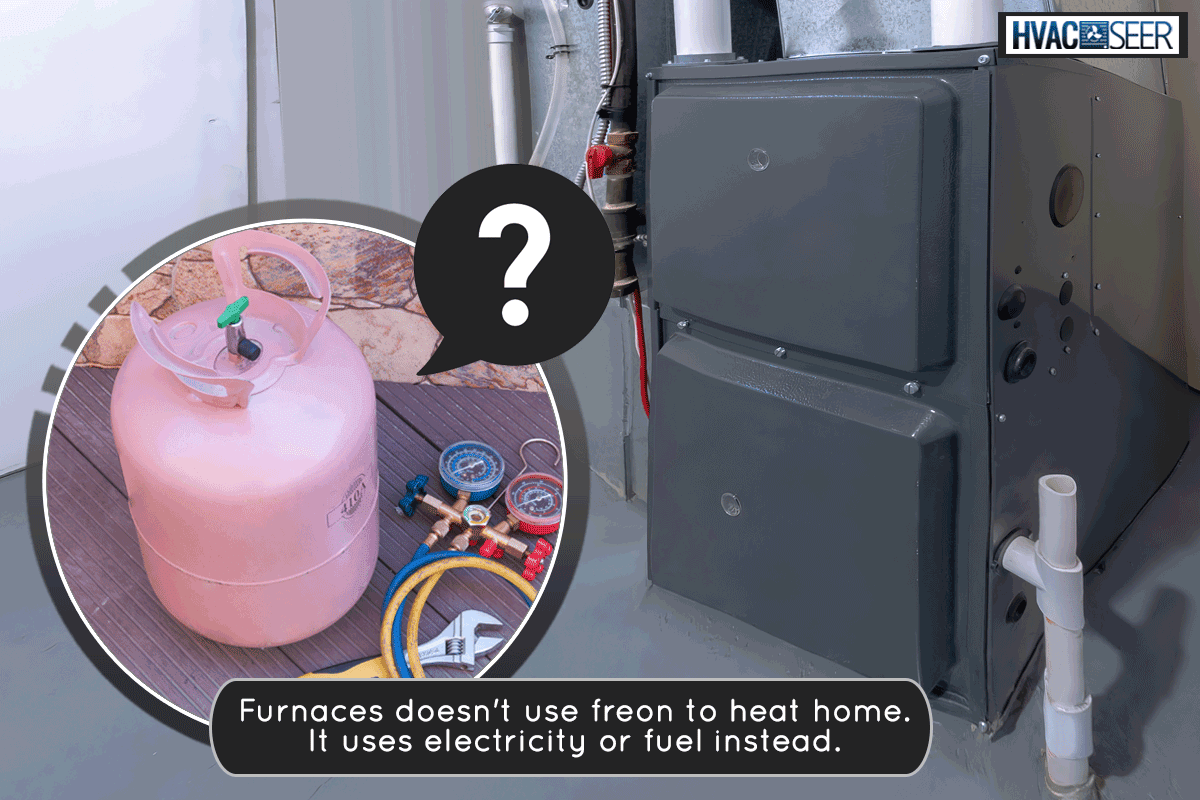
How Does a Furnace Heat Your Home?
Your furnace forms a part of the HVAC system in your home. This system is responsible for conditioning the air inside your home, thus providing a comfortable living environment throughout the year.
You can use a furnace or boiler to heat indoor air when it is cold and revert to the AC to lower the temperatures to comfortable levels if they become too high, as is the case in summer.
Some people use a heat pump to condition air, since you can use it interchangeably to heat or cool your home in mild climates. Those living in harsh winter areas often supplement the heat pump's heating capacity with a more powerful heating appliance like the furnace.
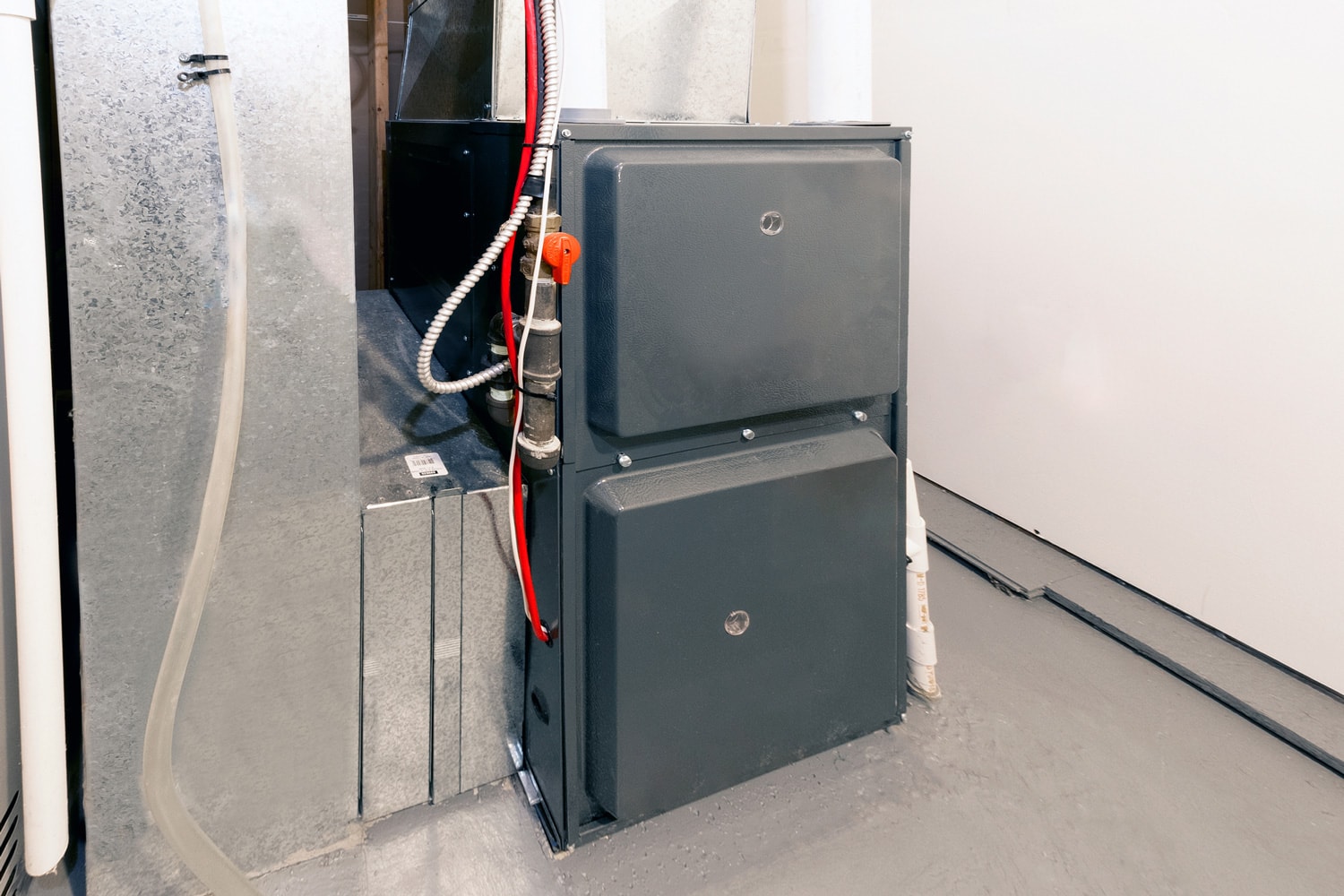
How a Furnace Works
The furnace has a thermostat that signals it to come on when temperatures inside your home fall below a pre-determined level. Once a gas furnace receives the signal, it opens the gas valves to let in gas. The burner then ignites the fuel and initiates the heating process.
The thermostat and gas valve work together to regulate the quantity of fuel that flows into the heating chamber. Typically, a furnace heats the air in this central location. The system then channels the warm air throughout your home using vents and ductwork.
While most furnaces burn fuels like propane, natural gas, or heating oil to heat air, some rely on electricity to perform the same function.
Because the furnace heats air by burning fuel, it does not use freon. Freon, also called R-22 or HCFC-22, is a type of refrigerant used in ACs and heat pump systems to transfer heat from one place to another.
Appliances that depend on freon to function optimally contain the refrigerant in a closed loop, part of which comprises evaporator and condenser coils. In their place, the furnace consists of components such as a blower motor, burner, inducer motor, and a heat exchanger.
The refrigerant absorbs and releases heat at different points in its cycle to enable an appliance to heat or cool your home. In addition, it changes states from liquid to gas and back to liquid as it travels through the closed loop.
Heat pumps have a reverse valve that alters the refrigerant's direction, thus influencing where it releases heat. When it is cold, it moves the outdoor heat indoors. Similarly, the refrigerant releases indoor heat outdoors when it is hot.
How to Choose a Furnace for Your Home
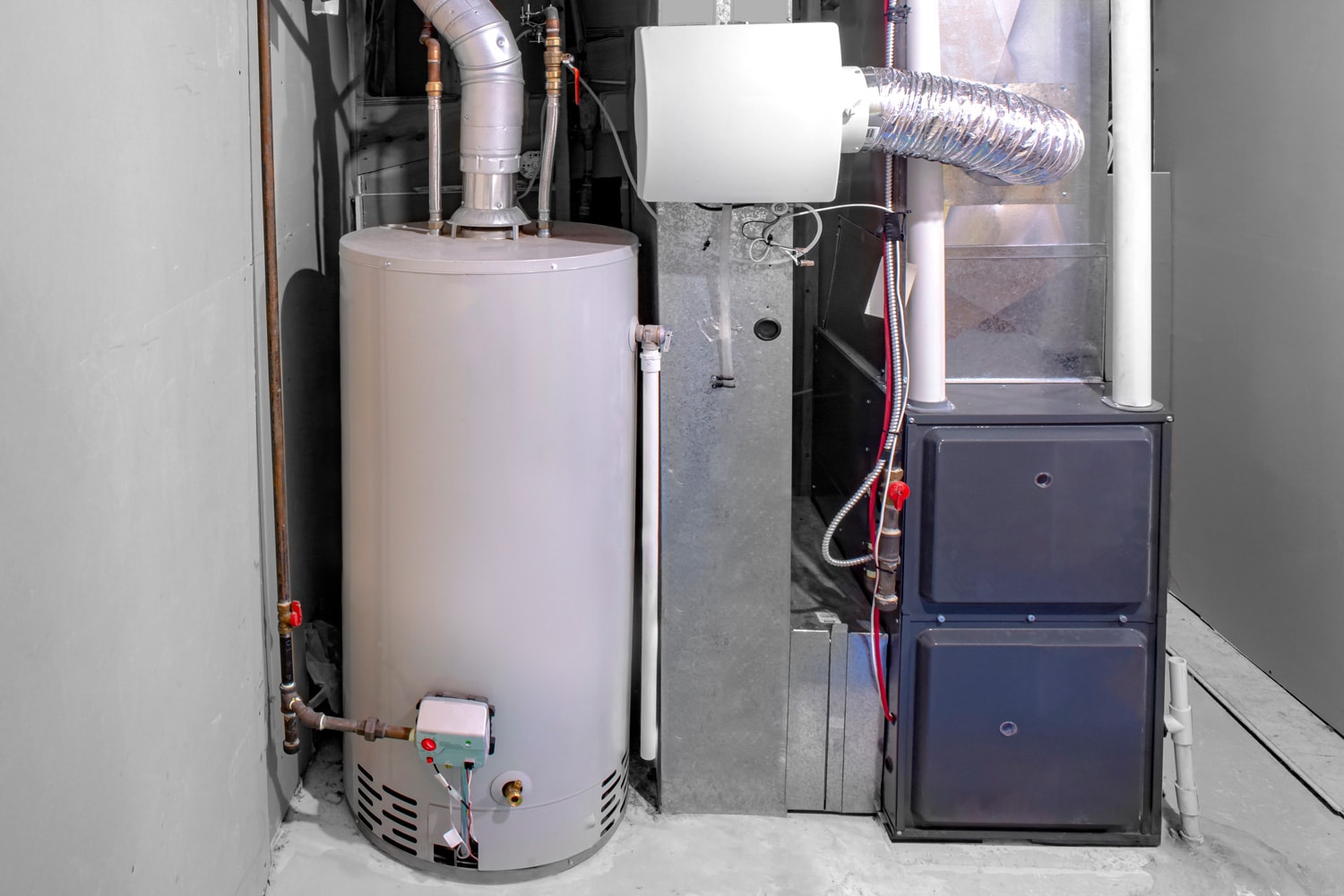
You may need to shop for a new furnace if you moved to a new home or have an old unit. Generally, furnaces last for about 15 to 30 years. Also, continued use of the appliance reduces its efficiency due to its natural wear and tear. With reduced efficiency, the heating costs increase.
These pointers will guide you on what to consider when purchasing a new furnace for your home.
Type of Fuel
As previously mentioned, a furnace uses electricity or burns fuels such as propane, natural gas, or oil to heat air. If you are replacing an old furnace, choosing a replacement unit that is compatible with your current unit's energy source is best.
But you can buy a furnace with a different fuel type if you intend to switch to a more efficient energy source soon. You can then convert your home's system to make it compatible with your new furnace before its installation.
HVAC System in Place
Consider the system already in place in your home before buying a new furnace. Do you have a central system where the heating and cooling functions run off the same system? If so, you will need to buy a furnace that will work harmoniously with your AC.
Do you have a split system that independently runs the heating and air conditioning? This arrangement offers more wiggle room to consider the heating and cooling appliances separately.
Also, consider whether you would like to retain the current heating and cooling plan or you would like to change it. Even though combining the system may free up some space in the home, it is prudent to consider the merits and weaknesses of each solution to make a reliable decision.
Size
Ensure you correctly size your new furnace to make the most of your investment. To do this, consider the square footage of your living space and the prevailing climatic conditions where you live. Also, consider the ceiling height since the calculations in most sizing charts presume eight-foot ceilings.
We measure the furnace size using BTUs. Ensure that you get a furnace with just enough BTUs. If the unit is too small, it will not have the capacity to heat your home. In contrast, when it is too big, it will frequently cycle, increasing wear and tear and creating uneven temperatures throughout the house.
Cost
When budgeting for a new furnace, consider the unit's purchase price and other costs like installation costs, the costs of purchasing accessories necessary to get it up and running, and the cost of changing your fuel supply, if required.
Further, estimate the tentative operational costs you will incur when running your furnace. While the initial costs are one-time, you will need a monthly budget for how much you are inclined to spend on heating your home.
The fuel your furnace uses and its efficiency ratings often influence its operating costs. While natural gas furnaces easily pass for the most efficient option currently, buying this type of furnace depends on whether the gas lines are already in place.
Evaluate your furnace's annual fuel utilization efficiency ( AFUE) rating and its overarching costs to choose the ideal heating solution for your home.
What Maintenance Does a Furnace Need?
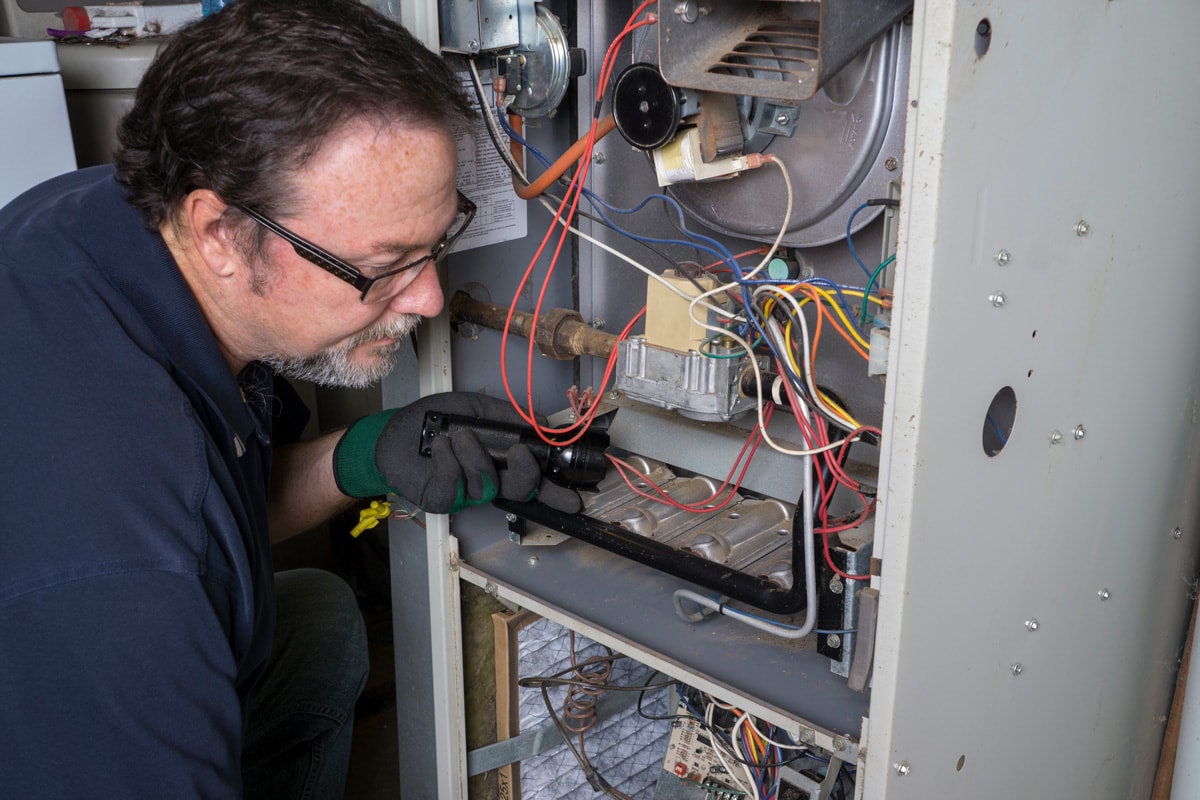
Regular maintenance ensures that your furnace remains in tip-top condition. It reduces the frequency of furnace breakdown since it enables contractors to arrest and resolve minor furnace problems before they escalate.
The timely resolution of issues saves you the money you would spend if the minor problems become significant. It also ensures that your appliance is safe to operate. Furthermore, your energy bill remains within a reasonable range since it enhances efficiency.
Ask an HVAC technician to perform these activities regularly to maximize your unit's efficiency and extend its useful life.
Change the Filters
Furnace filters help maintain good indoor air quality by trapping dust and other pollutants. But these pollutants constrict airflow as they build up on the filter, reducing the furnace's efficiency.
Regularly replacing the filters will keep your unit running as expected. You can do this yourself since it is a reasonably straightforward process. Consult your user manual to locate the filters. Most manufacturers also provide a guide on how to change the filters for your specific model.
Inspect the Thermostat
The thermostat regulates your furnace's operations by alerting it when to switch on or off. Ensuring that your thermostat is not malfunctioning is critical to guarantee that your furnace comes on when you need heat.
The professionals handle this task best, since they are well equipped to know what to look out for and how to interpret their findings.
Clean the Blower Assembly
Fine dust particles that pass through the filter can gather on the blower assembly since it is located next to the filter. If left to accumulate, the particles can increase the wear rate of the movable parts in the blower assembly since they increase friction.
Cleaning the blower assembly reduces the wear rate of its movable parts. Also, it helps maintain indoor air quality since it is responsible for distributing the heated air throughout your home.
Inspect the Burner
Combustion occurs in the burner as the pilot light ignites the air that is mixed with fuel. It is wise to inspect the burner for cracks, since it is subject to metal fatigue as the walls continually expand and contract. Also, check for rust and clogging that may result from dust accumulation.
Regularly inspecting and cleaning the burner can ensure its longevity. But it is best to leave burner repair or replacement tasks to seasoned HVAC professionals.
Final Thoughts
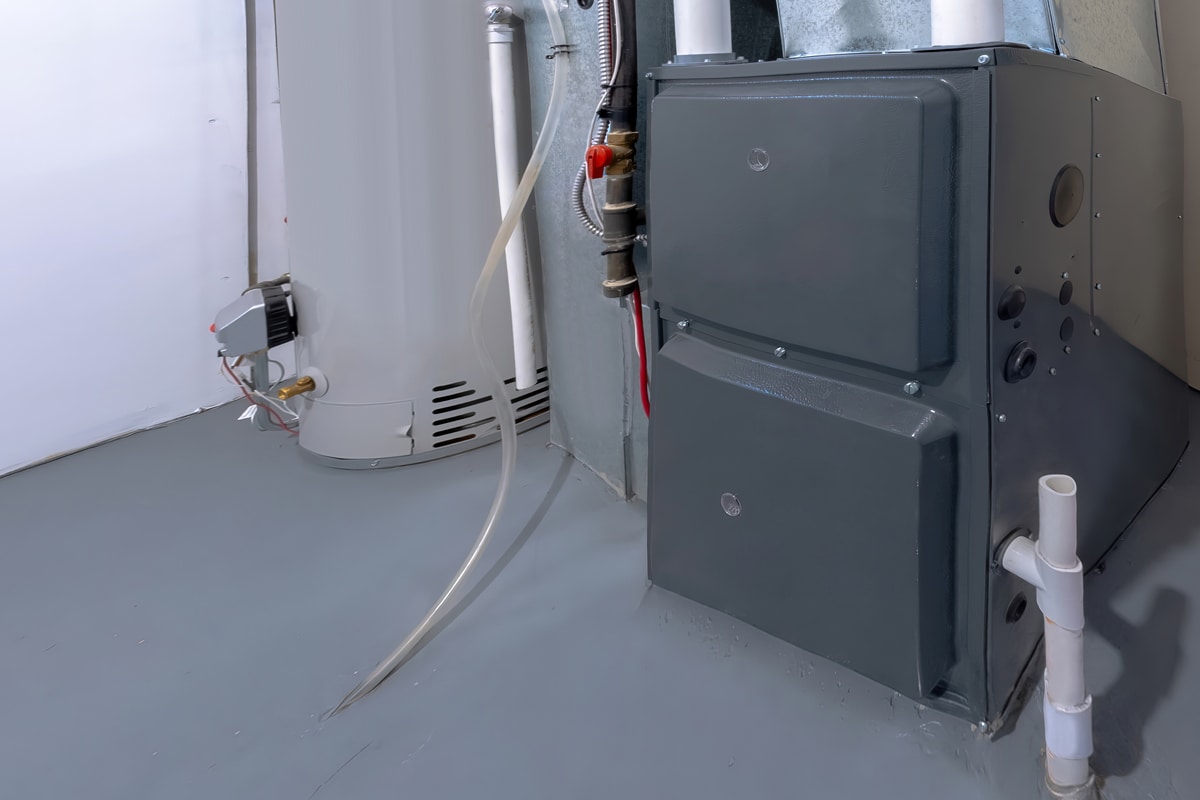
Your furnace burns fuel to generate heat rather than using freon, which transfers heat. We hope this post has helped you understand how your furnace works, and that you are equipped to make well-informed choices regarding your heating solutions.
It is also essential that a contractor services your furnace annually to ensure that it operates at optimal capacity.
Before you go, peruse our other posts:
